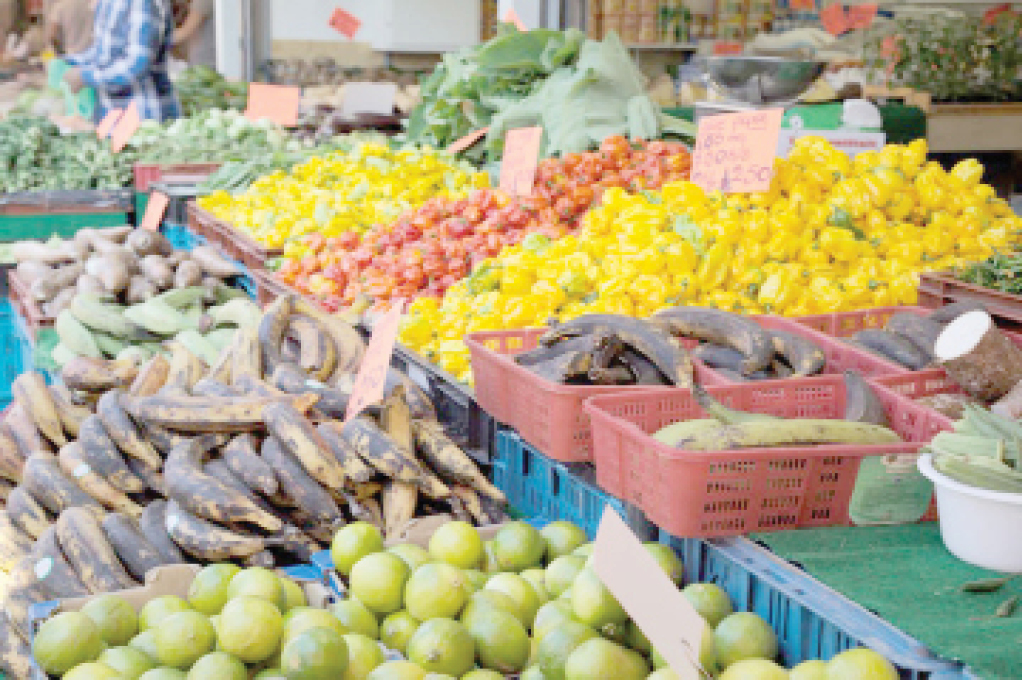How declining agric budget is slowing down sector’s growth
The federal government intends to spend N291.4 billion on agriculture in the 2022 fiscal year. The recurrent expenditure will consume N71.8bn, with an additional overhead N3.7bn, while the capital expenditure is expected to gulp N215.8bn across all agencies; representing less than three per cent of the total budget. For the Federal Ministry of Agriculture and […]

The federal government intends to spend N291.4 billion on agriculture in the 2022 fiscal year. The recurrent expenditure will consume N71.8bn, with an additional overhead N3.7bn, while the capital expenditure is expected to gulp N215.8bn across all agencies; representing less than three per cent of the total budget.
For the Federal Ministry of Agriculture and Rural Development, the federal government intends to sow N177.9bn into the sector in a number of ongoing and new capital projects across the country.
The ministry’s headquarters has a total allocation of N185.1bn, of which N6.4bn is for overhead, while capital expenditure is to gulp N177.9bn.
However, the amount falls short of the 2003 Maputo Declaration, where African leaders made a commitment to upscale agricultural funding to 10 per cent of their national budgets.
As one of the largest ministries, with about 45 agencies, many stakeholders believe the allocation to the sector is too low, which will hardly make any impact at the end of the financial year.
The ministry has two responsibilities: development of agriculture in its value chain activities and promoting rural development; which is why a huge chunk of the budget is going to upgrading of rural infrastructure, including construction of toilets in public schools.
About 40 per cent of the ministry’s capital allocation of N177bn; representing about N70bn, would be sunk into multilateral/bilateral loan-funded projects from the African Development Bank (AfDB), International Fund for Agricultural Development (IFAD) and others.
Some of the projects received the largest allocations: they include N32.8bn for Rural Access and Agricultural Marketing Project (RAAMP); which is new. N16.4bn is going to the Agro Processing, Productivity Enhancement and Livelihood Improvement Support (APPEALS); also new, while the IFAD-funded Value Chain Development Programme (VCDP) is to gulp N4.1bn.
The AfDB-funded Agricultural Transformation Agenda (ATAPS) appears as a new project in the budget and will take N8.2bn, while the Special Agro Industrial Processing Zones (SAPZ) will consume N8.2bn.
Some of these loan-funded projects are almost in their last circles, but they are just appearing in the budget as new projects.
Projects not receiving enough attention
With the daunting challenges confronting the nation, especially with regards to food and strategic reserves for security and market stabilisation, stakeholders expect government to intervene more in food reserves instead of allocating a meager N2.309bn. The country’s 33 silos with a capacity of 1.3 million tons of grains, need about N90bn to operate at full capacity to stabilise prices when scarcity hits.
Achieving self-sufficiency in wheat production to reduce importation has continued to remain a huge challenge for the country. Even though rice has witnessed significant transformation in the last six years, wheat suffered neglect. This year, the ministry budgeted to spend N1.3bn funding for wheat that has been declining as rice progresses with massive funding from the Central Bank of Nigeria (CBN).
Livestock continues to have low attention in budgets. For example, all the loan-tied projects are 90 per cent in the area of crops. Even the National Grazing Reserves Development (NGRD), which is an ongoing project, received a meager N1.5bn at a time many expected more funding to cut the bloodshed between farmers and herders.
The ministry came under fire for spending over N1bn for the renovation of its rented complex instead of completing the N7bn complex it bought at the Central Business District, Abuja. Even with this, under the next financial year, it is spending an additional N2.5bn on the construction of the Federal Ministry of Agriculture and Rural Development complex as a new project.
Nothing much has been done on extension services support to all agricultural value chains. However, as a new project, N2.6bn will be spent next year providing extension services to farmers.
Next year, the ministry is heading to Kano for the construction of a grains aggregation centre at Gezawa LGA at the cost of N1bn.
On rural development, the ministry intends to spend N3.3bn on the construction of feeder roads in rural communities in the six geo-political zones, in addition to N1.8bn on land and climate change management for sustainable agriculture.
Experts believe that the budget may not be able to address the crises in the agricultural sector because the real value chains have not received the attention they deserve.
